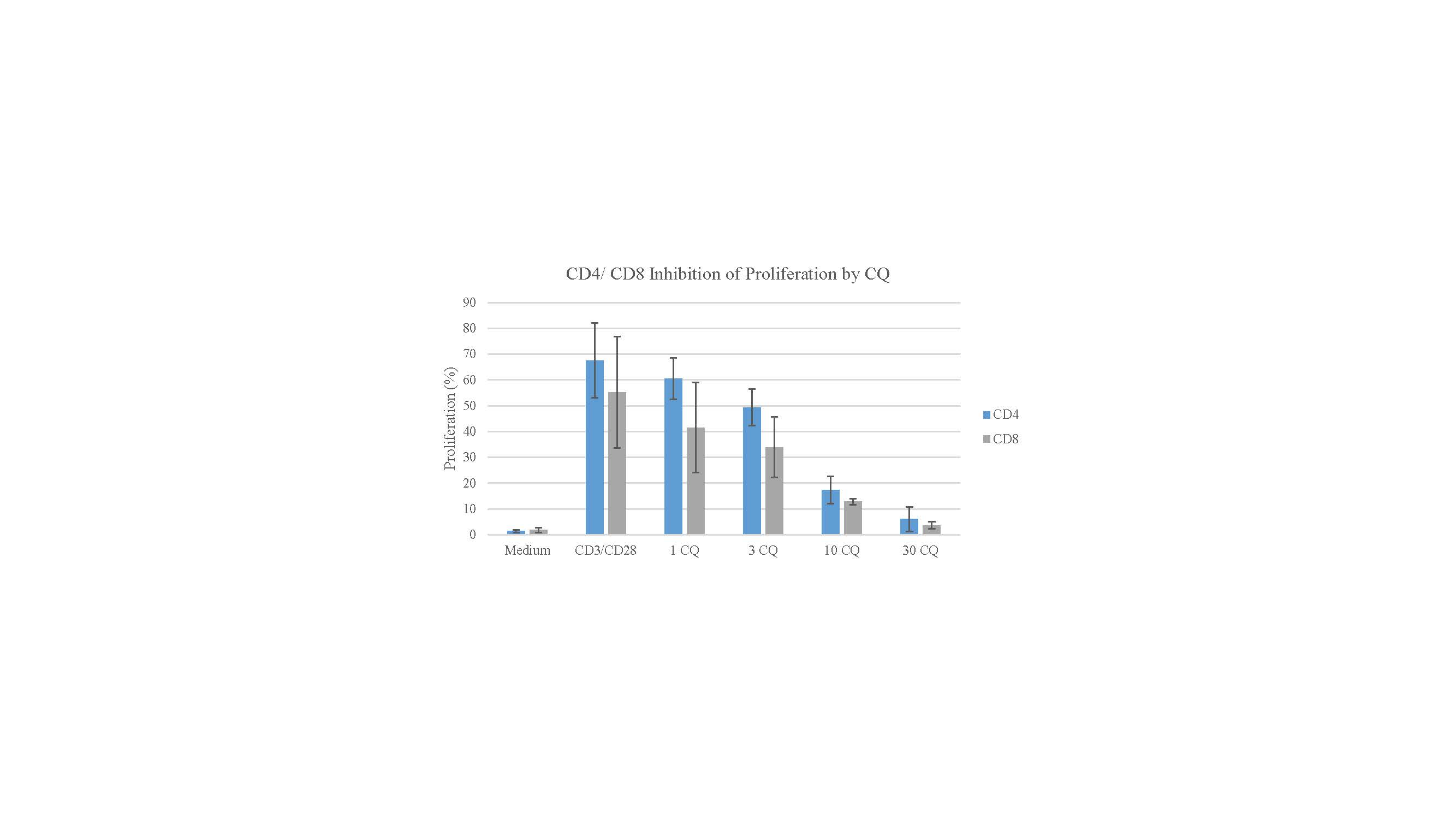Chloroquine’s Effect on T cell Proliferation
1Baylor College of Medicine, Houston, TX, 2Department of Surgery, Baylor College of Medicine, Houston, TX
Meeting: 2019 American Transplant Congress
Abstract number: A269
Keywords: CD3
Session Information
Session Name: Poster Session A: Kidney Immunosuppression: Novel Regimens and Drug Minimization
Session Type: Poster Session
Date: Saturday, June 1, 2019
Session Time: 5:30pm-7:30pm
 Presentation Time: 5:30pm-7:30pm
Presentation Time: 5:30pm-7:30pm
Location: Hall C & D
*Purpose: An anti-malarial agent, Chloroquine (CQ), has been widely used for the treatment of rheumatoid arthritis and lupus. Although the precise mechanisms of CQ are not well understood, CQ may reduce peptide-MHCII protein cellular expression. One result of this downregulation is the modulation of effector CD4+ T cell response. Because this mechanism differs from other anti-rejection drugs, CQ could be well suited to supplement current immunosuppressive regimens. However, there is very little insight into the effect of CQ directly inhibiting T cell proliferation. In this study, we used human in vitro assays to assess the ability of CQ to directly inhibit T cell proliferation.
*Methods: Blood was collected in acid citrate dextrose and peripheral blood mononuclear cells (PBMCs) were isolated by ficoll-hypaque gradient centrifugation. PBMCs were labeled with a cell trace dye and stimulated with CD3/28 dynabeads (non-specific activator of T cells). Medium control well was untreated PBMCs. PBMCs were treated with increasing concentrations CQ at 1, 3, 10, or 30 μM. After 5-7 days in culture, PBMCs were stained with 7-Amino-Actinomycin D (7-AAD), CD3-AmCyan, CD4-phycoerythrin, and CD8- allophycocyanin and analyzed on a BD fluorescence-activated cell sorting Canto II.
*Results: Figure 1: Inhibition of CD4+ & CD8+ T Cells with increasing concentration of CQ. Errors bars indicate standard error of the measurement
*Conclusions: These preliminary results demonstrate CQ inhibiting T cell proliferation in a dose-dependent manner. The frequency of T cell proliferation is still high at a concentration of 3uM suggesting the drug is not inhibiting T cell proliferation directly. The decrease in T cell proliferation at higher concentrations appears to be associated with toxicity of the drug as indicated by the increased frequency of dead cells (7-AAD+). Current investigation is directed towards determining CQ’s impact on MHC expression using human in vitro assays and monitoring transplant patients currently on CQ.
To cite this abstract in AMA style:
Muschalek R, Jindra P, Kerman R, Kueht M, Etheridge W, Cusick M. Chloroquine’s Effect on T cell Proliferation [abstract]. Am J Transplant. 2019; 19 (suppl 3). https://atcmeetingabstracts.com/abstract/chloroquines-effect-on-t-cell-proliferation/. Accessed July 9, 2025.« Back to 2019 American Transplant Congress

